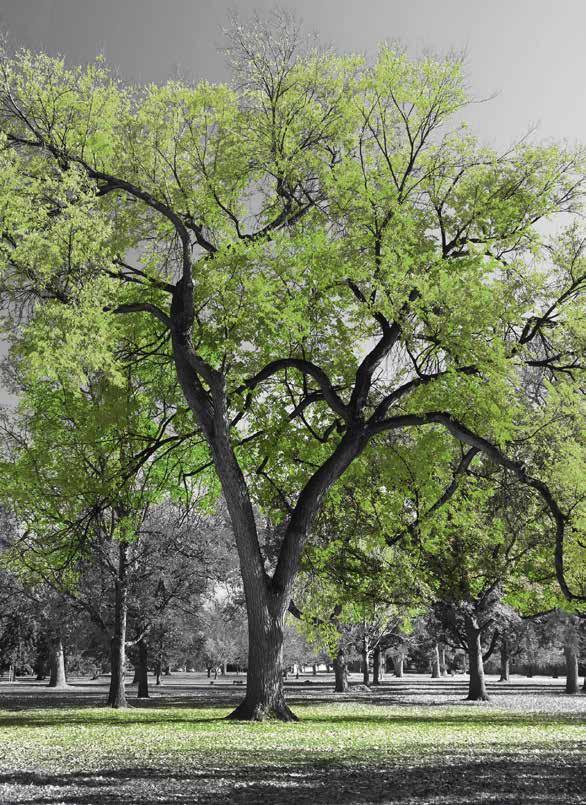

































































So, in the interests of my own sanity (and I suspect yours as well), I am going to completely ignore the ‘elephant in the room’ pertaining to Rome burning around us and not mention anything! Please don’t take that as ignorance - I think we all just need to take the light reliefs where we can currently!!!
Here at Voice Magazines, we’ve been on a bit of a roadshow!! When I started this magazine 12yrs ago now, it was all about shopping local and supporting the small local businesses, who very often have far more outgoings than incomings financially speaking, especially in the early days! These businesses don’t have huge budgets, so we wanted to give them a ‘Voice’ to get their message out.
The real threat of losing the high street altogether is more real today than at any other time and whilst some people may see no issue with that, it is a life line for so many people in so many ways from employment to accessibility (not everyone has the internet or the ability to use it) to company (it might be the only people that someone sees that day) to what happens to the properties and much, much more. Personally speaking, I love browsing a high street and finding little hidden gems or impulsive items that you think ‘Ooooo, Caron would love that!’, you can’t do that on the internet!
Apart from all of that, it is local business that keeps local communities and small areas going. The better our high streets, the more the money flows around your area to support the local sports team or donate to the
local charity for example. So, let’s all pull together this year and try and support our high streets – it’s fair to say that they’ve had a rough run over the last few years and now is the time for the community to support them! Bezos doesn’t need to be any richer but the local shopkeepers need to survive this difficult time, so please turn to our high street feature and join the ‘shop local’ revolution.
In other news, as we were out and about this month, you can also read all about our foot scan experience at another grassroots, small, Derbyshire based business who do fantastically on the global footwear platform - Rockfall. I may have mentioned earlier this year about a small plantar injury! Anyway, my crikey, that footscanner machine was amazing, I could see where my arch has fallen, and the physio kept saying about getting a supportive insole but I thought she was probably just being overly cautious! Having tried it, insoles are the future!! Only issue is, I need to make sure that they can be inserted into my *small* shoe collection!! #fingerscrossed
See you next month when who knows what alternative reality we will be in then? Perhaps Santa will start wearing blue!!!
PS: Don’t forget to mention the ‘Voice’ when you use any of the companies in this magazine
As a bona-fide member, or should I say the founder, of T.H.A. (OK, I made it up!) I was really pleased to be asked to contribute an article about National Tree Week which this year runs from 27th November to 5th December.
In a nutshell (acorn cup if you prefer) we NEED trees.
I’m going to chuck in a bit of history now… William the Conqueror took ownership of many of the forests in England, granting hunting rights only to the select few. These woodlands were known as “the Royal Forests” and mere mortals, even land owners, were restricted in their use of forest lands so that the, ahem…”great and good” could “enjoy” a spot of hunting every so often!
Trees nurture and sustain us and the planet we call home in so many ways. From the very air we breathe, to the houses we live in, the furniture we use, and even (some of) the plastic necessary for 21st Century life - trees are essential to our existence.
Without woodlands and forests, land loses integrity and stability. Erosion by wind and water is more extreme without trees acting as wind blocks, and their roots soaking up rainfall. Just look at what happens when forests are cleared in places like the Amazon - biodiversity drops, the soil dries out, there is less rainfall (the Amazon rainforest actually create their own rainfall - did you know that?) and the result is often wildfires.
Trees also soak up carbon dioxide in the atmosphere, and when present in towns and cities it has been estimated that they can reduce urban temperatures by up to 7°C. So, not only do trees slow global warming by capturing and containing CO², they also help keep our cities cooler in the summer as they lose moisture and their leaves reflect heat (from tarmac and concrete) upwards and away from the ground.
It’s not only we humans that benefit from trees, one mature oak tree (my favourite species) can be home to as many as 500 different kinds of birds, insects, and small animals. Felling a great old oak will not just kill the tree itself, but will deprive hundreds of other living creatures of their home. Even trees that have died in situ continue to provide both habitats and food sources for other creatures.
These rights were not overturned until The Forest Charter, 1217. Eight hundred years later, in 2017, a new Charter for Trees, Woods and People was launched with the following objectives:
• Sustain landscapes rich in wildlife

• Plant for the future
• Celebrate the power of trees to inspire
• Grow forests of opportunity and innovation
• Protect irreplaceable trees and woods
• Plan greener local landscapes
• Recover health, hope and wellbeing with the help of trees
• Make trees accessible to all
• Combat the threats to our habitats
• Strengthen our landscapes with trees
These articles
What are YOU going to do in National Tree Week to aid these objectives?




Welcome to YOUR community noticeboard. A dedicated space for you to post notices, events and for not-for-profit community groups advertise in.
To place a notice, from a super-low rate of 6+VAT per square
Contact Danielle on 01773 549035 or community@voicemagazines.co.uk
In 1993, members of the Mansfield Lioness Club came up with a new fundraising initiative for the Hospice. With the help of donations from local companies, the first “Tree of Light” was erected and dressed in the Hospice Grounds, raising an amazing £1840.00.

The Mansfield Lioness Club disbanded after several years and some members decided to continue dedicated fundraising for the Hospice, they became appropriately known as SHINE.
The lighting ceremony has changed considerably over the years, developing from a small group of people attending a chaplain led service at the hospice to a very busy event at Queen Elizabeth ’s School hall and after that at the Eastwood Suite at Portland College. Some years ago we created a Tree of Remembrance which enables sponsors to write a personal message on a tag and attach it to our symbolic tree, which stands in the Hospice reception. This proves very popular with bereaved families.
The tree of Light began as a fundraising event and has raised almost £220,000, however it has become much more. It is a way of remembering those we have loved and lost at a special time of the year. We hope the tree will remain a symbol of light and hope for many years to come and that it continues to bring comfort to us all.
We are very grateful to Collis Engineering who arrange delivery of the tree and erect and dress it for us.
To find out more or to sponsor a light, please contact us by the methods below.
John Eastwood Hospice Trust, Mansfield Road, Sutton in Ashfield, Nottinghamshire, NG17 4HJ Web: www.johneastwoodhospice.org.uk Email: contact@johneastwoodhospice.org.uk Tel: 01623 622626
on 01773 549035




We’re particularly fortunate at Voice Magazines to get invited to many different events and places but when we were invited to review a foot scanner at Rock Fall by the Managing Director, we were a little surprised! However, I can report that that it was actually one of the most informative, interesting and unexpectedly fun things we have undertaken as a team.
When we arrived, we were greeted by the Factory Shop Manager, Amanda. We received a lovely warm welcome, which continued when we were handed over to the knowledgeable and highly entertaining Dave, who led the demonstration.
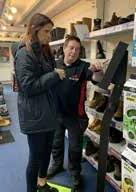
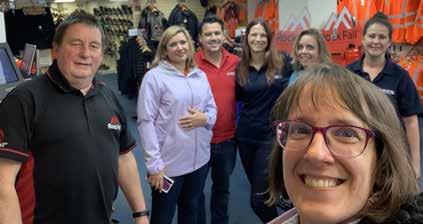
The first part of the presentation was really thought provoking, when asked “Do you suffer from back, hip or knee pain? Everyone one of us answered ‘yes’ to one or all of the above and we were surprised to find out that this could be due to our feet.
We were then each invited to stand on the Activ-Step Foot Scanner machine, which assesses the shape, movement and pressure of your specific feet, to be able to identify the pronation and supination of your feet whilst moving.

The foot scanner is so clever and it truly is revealing to identify what kind of foot support you need to alleviate some of these issues. Once you have completed your assessment, you are pointed to 1 of the 3 insoles which best suit your particular feet and when you test the samples, you can really feel the difference in foot support.

This particular technology was originally identified as specifically relevant for tradespeople and people who spend all day on their feet, but the reality is that there is no-one that this isn’t relevant to, who currently, or has in the past, suffered from any back, hip or knee pain. And the best news is, currently Rock Fall have an offer on the insoles, which currently rrp at £32, but you can have the assessment and purchase these insoles for £25 when you purchase a new pair of shoes.
Team Voice can unanimously endorse this gem of a shop on the industrial estate in Somercotes. They provide such a warm welcome, have a great range of products and are highly knowledgeable about such an important subject that few people probably have any experience of. So, if you have any issues with your back, hips or knees – support a local business and help improve your walk – you won’t be disappointed.
Black Friday, which is November 25th this year, is one of those American imports I question that we really need. Originally coined to mark the Friday after Thanksgiving when traditionally Americans would start their Christmas shopping.
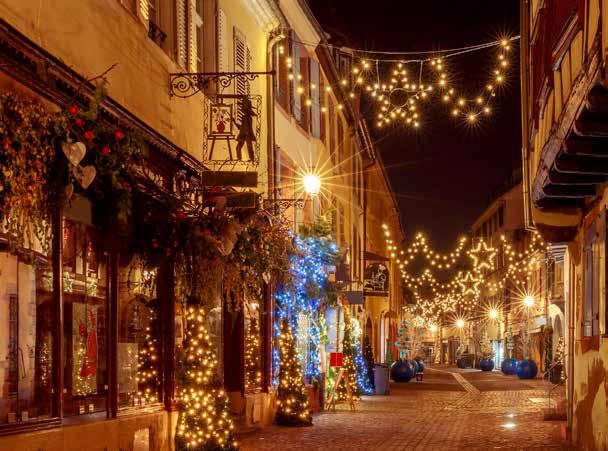

I delved into the history behind the phrase “Black Friday”, and discovered that the first reference in relation to Thanksgiving was in the early 50s when it related to workers calling in sick the day after the celebrations. Around the same time, the terms “Black Friday” and “Black Saturday” came to be used by the police in Philadelphi to describe the crowds and traffic congestion accompanying the start of the Christmas shopping season.
It took a while for the phrase to gain traction, and it only really became a kind of sales vehicle when an alternative derivation of the meaning was suggested in the 80s. This was that retailers traditionally operated at a financial loss January to November and made their profit during the holiday season, beginning on the day after Thanksgiving. In pre computer accounting days it was usual to use red ink to show negative amounts and black to show positive. Black Friday, under this theory, is the beginning of the period when retailers would no longer be “in the red”.

Many large retailers now try to con us Brits out of our hard earned money by promoting “Black Friday Offers”, and it can be quite tempting to spend cash on what look like great deals…but before you part with your dosh, just check to see if the saving is as great as it claims to be!
Even better, ignore the big retailers altogether during the festive shopping period. Instead concentrate on the high streets of our local towns and villages and spend your money with independent small shops, producers, and makers. They are owned and run by people like you and I who are aiming to make a living for themselves and their families. The money we spend in their shops will not go towards funding the pension of a multi-millionaire at the top of a large faceless corporation.
If you’re not a fan of retail therapy and prefer online shopping, look on the likes of Etsy, Not on the High Street, and even Facebook and Instagram for small shops, creatives, and makers. Many local creators will only be selling online or at local craft fairs and events.
We need to support the people in our local economies. We need to prioritise purchasing from independents, be that in a shop or online. Yes, a multinational may appear cheaper, and with the current state of many of our wallets that is appealing, but big corporations seldom help small towns and villages.
Here’s a challenge for you…keep your pre festive spending in your local area. Buy sustainable products. Limit your purchase of plastic toys in favour of books. And if in doubt, buy a gift voucher from a local shop!



















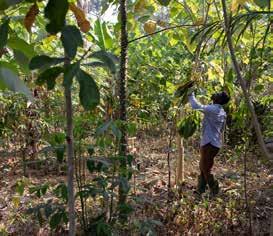

People are often curious about how Fairtrade pricing works and how farmers benefit. It’s not rocket science, we promise, and chocolate is one of the most straightforward ways to demonstrate this.
Chocolate is one of life’s simple pleasures. A pleasure many of us enjoy every day. But sadly, the cocoa industry has been blighted by persistent problems like discrimination, exploitation, deforestation, and low prices which perpetuate poverty for the farmers who grow the cocoa. Imagine you buy a £1 bar of non-Fairtrade chocolate. Of that £1, just six pence goes to the cocoa producer. So, who did you just give 94p to? About 40p went to the chocolate company, 35p to the retailer and the rest to other parts of the supply chain.
When terms of trade don’t work for farmers, it is impossible for them to escape from the cycle of poverty. Seen like this, it’s obvious that giving farmers and workers a better deal is not about asking you to pay a higher price. It’s about giving ensuring more of the money gets to farmers.
The Fairtrade minimum price defines the lowest possible price that a buyer of Fairtrade products must pay the producer. The minimum price is set based on a consultative process with Fairtrade farmers, workers and traders and guarantees that producer groups receive a price which covers what
it costs them to grow their crop. When the market price is higher than the Fairtrade minimum price, the trader must pay the market price.


The Fairtrade Premium is an extra sum of money farmers and workers receive for the sale of their goods that they can invest in projects of their choice, such as new health centres or schools. In 2021, sales of Fairtrade products in the UK generated £25.2 million (€30m) for farmers and workers to invest in their businesses and communities.
The unfair status quo of trade isn’t working. With the increasing problems farmers face due to climate change and the cost of living, it is only going to get worse. It’s time for radical change. To make a difference, you can start by choosing Fairtrade.



SATURDAY 19th NOVEMBER 2022 9am-4pm




Idlewells Centre, Sutton In Ashfield
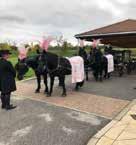
Friday 2nd December 2022 11am-7pm

Saturday 3rd December 2022 10am-4pm


Sunday 4th December 2022 11am-5pm
MANSFIELD MUSEUM












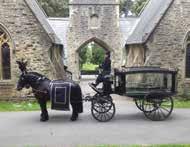



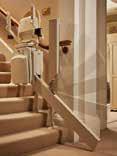

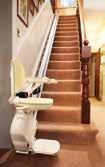


1. Spray a large non-stick saucepan with low-calorie cooking spray and put over a medium heat. Add the garlic, shallot, leek, carrot, celery and fennel seeds and


for

you add more – and cook for
the
Add the
to your liking
and keep cooking and stirring until the liquid has been absorbed and the


might need more water).
from the heat and stir in the quark, then scatter over the


with
season to taste.











In the 18th and 19th Centuries we seemed to have more defined seasons and certainly harder winters. I think these 2 stories will illustrate the point. In January 1772 the weather was so severe oil froze in public systems.
On the 28th January 1814 the Leeds mail coach left Nottingham about 7 in the evening drawn by 6 good horses and by 9.30 it had travelled no more than 8 miles on the road to Mansfield. The last mile, owing to the fatigue of the horses and the snow accumulated on the coach wheels and body, had taken more than an hour to complete. The 2 outside passengers were asked by the driver to get inside the coach to join the lady and gentleman who were already inside and make themselves comfortable for the night as both he and the guard found it impossible to continue. They noticed what they thought was a dead man lying on the road near to where they were they had stopped. They attempted to reach the body and found it to be a man who was still alive though unconscious. They got him into the coach.
By the 11th February the cold was still more intense. A Mr Thomas Rhodes who was Mr Chatsworth of Annesley’s butler and a man named John Curtis, also of Annesley were travelling to Mansfield on the road now known as the A60. The men’s vehicle was pulled by a team of horses. Near the Hutt they met a foot soldier also going to Mansfield. Mr Rhodes, fearing the man might be starved to death (“starved” meaning extremely cold) generously took off the front horse of his team for the soldier to ride. The soldier, after great difficulties arrived safely in Mansfield.

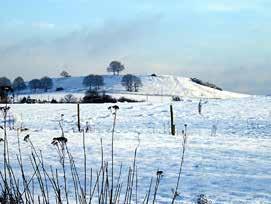

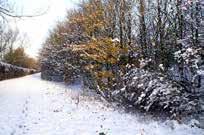


Unfortunately, the two men with the coach found the horses in the team pulling their coach wouldn’t move without their leader. Why these poor men didn’t realise this I don’t know. Anyway, the men became exhausted with the long exposure to the storm and were found frozen to death on the ground next morning a short distance from each other. One man left a widow and eight children.
After an hour, the man had recovered enough to be able to tell his rescuers that his name was Allison, he was 70 years old and that day he had walked from Mansfield to Nottingham. He was returning to Mansfield and the last he remembered was creeping on his hands and knees to reach the guidepost. The coachman with 5 horses sort refuge in a farmhouse in the neighbourhood. The guard with one horse returned with the mail bags to Nottingham. Next morning the lady was fetched home by her husband in a post-chaise with 4 horses attached. The rest of the company made their way as best they could over the frozen snow to Mansfield.
Angela Morris Sutton Heritage Society











Rafa is back!! This walk is nearly as old as he is, having first featured back in September 2013! But like Rafa not too much has changed, except maybe he took it a little slower this time. There are some fantastic views on this walk of Bolsover Castle and Sutton Scarsdale Hall and it’s great for the dogs, with plenty of opportunity to go off lead. However, please be careful, especially if your dogs have a high prey drive, as there are phesants in the woods and sheep protected by electric fences.

A moderate walk for you and your dog with some gradualy climbs. This walk should take 2 to 21/2 hours. There are some sections which cross fields, which may be particularly muddy if it has been wet. There is also a section of road to walk along so please take care and make sure you wear appropriate footwear for the conditions. And as always, follow the countryside code!
1. To begin go through the gate opposite the car park entrance. Continue along the path with a metal fence on your left. Keep to the main path to pass a sculpture on the left.
2. Continue to cross a lane and continue along the trail. Then after a short distance pass under a bridge. After some distance you arrive at a crossroads of footpaths.
3. Turn right and pass through a width restrictor and



along the path before crossing over a footbridge. In front of you is a large pond. Go diagonally left and then skirt around the left-hand edge of the pond. On the opposite side of the pond you will find a marker post and a stile.
4. Cross over the stile and head diagonally left across the field, heading towards ‘Sutton Scarsdale Hall’ on the horizon. After passing underneath a telegraph wire, continue to keep



left of some old stone buildings in the field. At the far edge of the field, turn left along a farm track keeping a fence and the motorway on your right. Continue until you reach a road.
5. At the road turn right and go over the motorway. Follow the road round to the left and uphill *At this point, If you wish to take a closer look at Sutton Scarsdale Hall, take the path on the right, half way up the hill*
6. Continue along the road into ‘Sutton Scarsdale’. After the road bends sharp right you will see a footpath to the left sign posted for Heath Village. Take the footpath heading downhill across a field.

7. At the bottom right-hand corner of the field, cross a footbridge and then over a stile into another field. In this field, head straight uphill. At the far end, cross over a stile adjacent to a telegraph pole and onto a lane.
8. Cross straight over the lane through a gate and into another field. Keeping the hedge on your right, go to the bottom of the field to cross another stile.
9. Now you have the hedge on your right and trees on your left. Continue straight ahead to cross another stile onto a lane. Cross over the lane diagonally right, ensuring that in the next field you have the hedge on your left. With the hedge on your left and going gently downhill, go to the bottom left-hand corner of this field.
10. Go through a gap in the fence and cross a footbridge. Go straight ahead, passing through a gap in the boundary of the field, then, at a marker post, turn left. Continue along the edge of the field, then immediately after a pylon on your left, turn left down a farm track.
11. Continue ahead, keeping the hedge on your right. The path curves left and then right, through a gap into another field and continues downhill with the hedge on the right. When the hedge on the right ends, continue straight


towards the motorway crossing an open field.
12. Go over a stile to cross another field, at the far edge of this field turn left keeping the fence on the right. Upon reaching a lane turn right to pass under the motorway.
13. Continue straight to cross an open field heading for a gap in the hedge. After passing through the gap turn left keeping the hedge on your left. Follow the hedge around to the right and after a short distance, go over a stile on your left. Then go over a footbridge and over a second stile into a field.
14. Cross the field diagonally right, keeping Bolsover Castle straight ahead. In the far righthand corner of the field turn right to cross over a footbridge. Now go diagonally left across a field and then over a stile into a wooded area. After a short distance, go over another stile and into a field.
15. Go diagonally left across the field and then over a stile onto a well laid path (The Stockley Trail). Turn left along the trail, which you can follow, over a road and back to the car park.
This walk is for illustrative purposes only. Voice Magazines Ltd takes no responsibility for anyone who chooses to follow this route and encourages all walkers to obey all byelaws and signs and to respect the area they are walking in, ensuring they pick up all dog mess and obey the countryside code at all times.
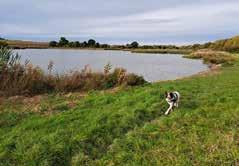







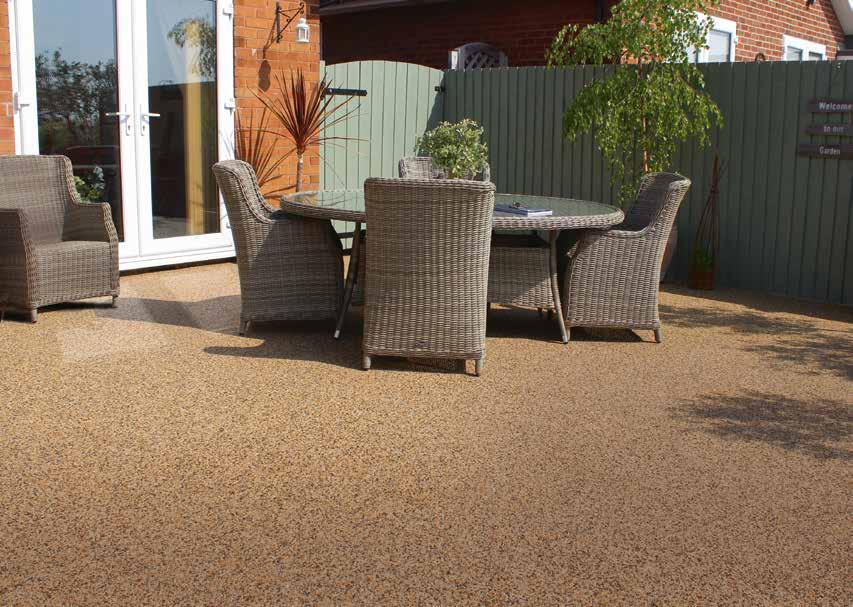



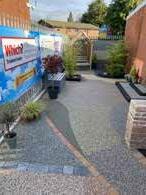
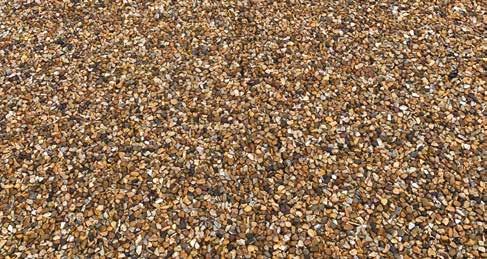


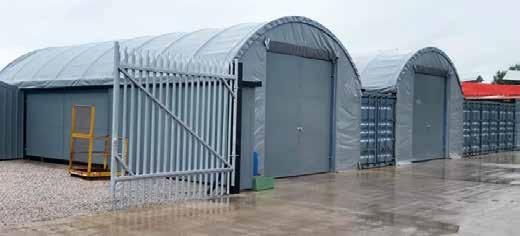
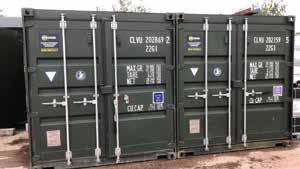





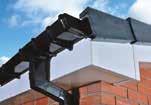






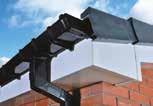


















What makes any business stand out from the rest? The answer can be as simple as the level of care and service offered to its customers and the broader community.

FAMILY-RUN, independent and local, FlameCare certainly ticks all the boxes in terms of ‘going over and beyond’ the call of duty. In terms of local charities, the commitment is as strong and wholehearted as ever. For instance, for any new customer signing up to a central heating maintenance plan, FlameCare is donating the first month’s subscription to Ashgate Hospice. FlameCare is also sponsoring Marcella Kirk, owner of Maison Mes Amis restaurant on Chatsworth Road, on a gruelling desert challenge. Marcella, and her friend, Helen Tait Wright, will be faced with

2,200km of extreme off-roading in their 4x4 Land Rover ‘Precilla’. The challenge entails travelling 2,200km across Morocco through all-terrain, desert, mountains, and ocean.
The charitable and warmhearted approach, which is synonymous with FlameCare, is also, of course, extended to its loyal customer base. “Our customers really deserve our support during these challenging times of everincreasing energy bills,” said Managing Director, Simon Fletcher. “That’s why we’ve initiated a price freeze on our central heating and maintenance plans for the next 12 months – starting immediately –from 1st September. This applies to both existing and new customers.” FlameCare’s diversification into bathrooms and bathroom adaptations has been an overwhelming success. Indeed, fitting dates before Christmas are running out fast, so booking early is essential for installations wanted prior to the festive season.
“I contacted FlameCare regarding a bathroom adaptation at my dad’s house, as he was starting to feel unsafe.
From initial visit to final completion, the professionalism from FlameCare shone through every step of the way. The communication and project management were excellent throughout. Every member of staff was sincere, honest, and full of integrity.
The new walk-in shower with grab rails and water-proof boarding has given my dad confidence and me complete peace of mind. I would wholeheartedly recommend” Shaun Bennett
FLAMECARE ARE PROUD TO SUPPORT ASHGATE HOSPICE

A piece of advice often given to creative writers is to write about what you know. Which is exactly what journalist Robert Peston, has done in his novel The Whistleblower
.


Mr Peston is probably best known for his scoop that Northern Rock and RBS went with begging bowls to the Bank of England at the beginning of the 2008 crash, sparking queues of panicking customers outside the banks. He’s been economics editor for the BBC and had his own weekly politics discussion programme on TV.
So yes, he does know about politics, money and finance - and journalism. Add dodgy dealings at the highest level and the mysterious death of the hero’s sister, a high flying Treasury official and you’ve got a fast paced political thriller which grabs your attention and hangs on.
It’s based in the Blair years which greatly adds to the entertainment value for those who remember the heady early days of Cool Britannia. You’ll probably find yourself thinking, I know who that’s meant to be. And there’s plenty of interesting nuggets about the workings of certain kinds of journalists at the top.
Definitely worth a read.






Across
7 Kidney stuff is hard to learn (5)

11 Thing is, it’s kind of a
partner (5)
13 A mark taken as effect of actions (5)
16 Chine set up in alcove (5)
Down
2 Vase produced in blast-furnace (3)
4 Greeting, if included, is a sound system (2-2)

10 It’s an approach to earn, roughly (4)






12 Disgusting? Bit of a blast! (4)
15 Strung out axis (shorter for a cab) (4)
17 Bit of barbecue sauce for the potter, please? (3)








Bookings are now open for our Santa Special cruises. On all our Santa Special cruises, there



£9

John Varley ll will be running from Tapton Lock on 26th & 27th November, 3rd & 4th, 10th & 11th, 17th & 18th and 22nd & 23rd December at 10.00, 10.40, 11.20, 12.00, 13.00, 13.40, 14.20 & 15.00.
Madeline will be running from Hollingwood Hub on 3rd & 4th, 10th & 11th and 17th & 18th December at 10.00, 11.00, 12.00, 13.00 & 14.00.
Hugh Henshall will be running from Shireoaks Top Lock on 3rd & 4th, 10th & 11th, 17th & 18th and 22nd & 23rd December at 11.00, 12.00, 13.00 & 14.00.










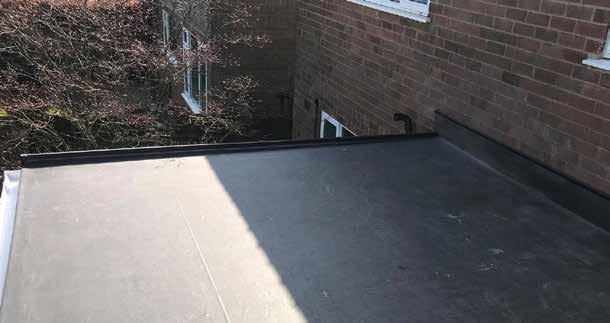


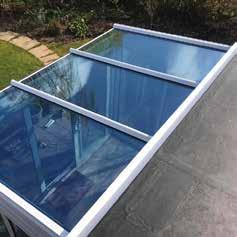











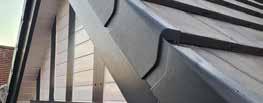
















No
Child and pet
Low maintenance
No
No more lawn mowing
UV stabilised
No weeding
Ideal for shaded

No more soggy garden
Most lawns finished in 2 days



Terracotta
Also you don’t want plants in containers sitting in water as it will rot the roots so remove any saucers from under the pots and raise off the ground if possible. You can buy little “feet” to do the job, or bricks, stones or wood will work just as well. Even in winter, containers planted with the likes of winter pansies can dry out. But don’t water if it looks like freezing.
Bubble wrap is also handy for helping to insulate greenhouses. It’s a good time now for pruning fruit trees such as apples and pears as the trees are less likely to bleed and weaken now the sap has retreated down their trunks. The idea is to take out any damaged branches and cut away those which are crossing and rubbing against each other. Ideally you’re looking for a goblet shape so there is good ventilation in the middle of the tree. Shorten growth from this year by a third and go back to a bud facing the direction you want the branch to grow. But don’t prune cherries or plums –leave them for the summer.
And if you’re tempted in this mood of chopping and lopping, to cut back flowering cherry or forsythia, which suddenly look very leggy around now, be aware that you’ll be removing next year’s blossom branches. They really need to be pruned after flowering...
Clear







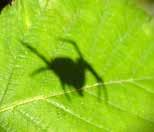


Very few British spiders will bite you, and of those which do, most don’t draw blood. With one possible exception, they are not effectively venomous. The exception I write of is the ‘False Widow’, a species spreading since its arrival into southwest England from the Canary Islands back in the 1800s. This can bite and for some people, it does produce a very nasty toxic shock. Other species are perfectly harmless, and even the big ones such as the ‘Cardinal Spider’ (the really big leggy House Spider) is probably more afraid of you than you should be of it. However, it is very large, and those long legs make it look intimidating. The big, fat-bodied ‘Garden Spiders’ which live in circular orb-webs are totally benign, though I recall a local Junior School being closed because parents thought these big spiders were False Widows. This said, I have had False Widows reported from a local allotment garden where someone had suffered a bad reaction to a bite from a big dark-bodied spider in his shed.
However, not everyone likes spiders and yet with autumn creeping in, there is no getting away from them. Once we are into November, then bushes, hedgerows, and even windows are well covered in spiders’ webs of various shapes and sizes. Not all spiders make webs and some such as Wolf Spiders actively run down their prey. However, of those species which are web-makers there are two main types. These are the ‘blanket’ or ‘sheet webs’, and, as mentioned earlier, the orb webs. Sheet webs are constructed by spiders called the ‘Linyphiidae’ and there are 280 British species from tiny ‘Money Spiders’ said to bring good luck if you find one on you. These
spiders hang around under their webs waiting for dinner to just drop in. Some small Linyphids make sheet webs in depressions on the ground, on low vegetation, or on tree bark. Autumn fog or dew highlights these shimmering webs across hedges, herbaceous plants, and on trees or shrubs.

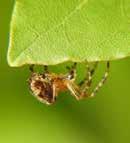
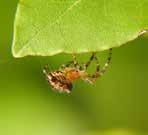
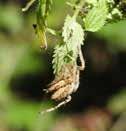
The second big spider group is made up of the ‘orb-web’ spiders, the spider family ‘Araneidae’, and this includes the most common orb (i.e., circular) web builders. These inhabit gardens, hedgerows, fields, and woodlands. They are spiders with eight similar eyes, and eight legs with hairs or spines, and with which incidentally they ‘hear’. The webs are particularly distinctive because they are characteristically constructed to form a framework of non-sticky silk to which the spider adds a final spiral of droplet-covered sticky silk. These webs are natural works of art and engineering and begin with the spider floating a line on air currents to a nearby surface. This first line secured, another dropped from the centre makes ‘Y’ shape, and scaffolding follows. Radii of non-sticky silk are secreted before the final spiral of sticky ‘capture silk’ is in place. These little beasties have specially designed extra claws on each foot to help them manipulate silk whilst they spin and to move across the non-sticky parts of their webs. You often see the big-bodied females with their large spherical abdomens sat at the centre of their web. They are generally much larger than the males. The most handsome of these is the Garden Spider and I used to collect handfuls of these on my way to Junior School where I presented them to our class mistress for the nature table. I’m not sure she was impressed!
Don’t forget to mention Voice Magazines when responding to the Ads
























Progressive Furnishings is a family run local business established 19 years ago by Jonathan and his brother James. They sold their wares on a stall at Thorsby market for a short while before opening a small (500 square foot) unit in Sutton-in-Ashfield.




After trading for a mere 5 years, Progressive Furnishings made the move to a shop in Forest Town, where they have remained to the present day. The company is a real family affair with Jonathan still at the helm supported by his wife Jo, brother James and son Harley, even the family dog has been known to lend a paw or two on occasion.
Progressive Furnishings pride themselves on providing quality items. When you purchase a sofa from Progressive Furnishings every part of it will be genuine Italian leather including the sides, arms and back. Not only will your new sofa be built with pride but it will also be pocket sprung so it won’t collapse and sag.
There are sofas in stock so, if you want a new leather sofa and they have the colour in stock, it can be delivered to you without the wait.
Progressive Furnishings don’t just do sofas, there is a wide range of lounge, dining room and bedroom furniture so all your furnishing needs can be met in one place.
All items purchased will be delivered and assembled free of charge by the Progressive Furnishings delivery team who also remove all packaging from site. All sofas have removable backs to enable easy access into even the smallest of doorways.
If you order now, you can choose when your purchases are delivered, because Progressive Furnishings carry a wide range of stock, they can even get your purchases to you before Christmas.



















